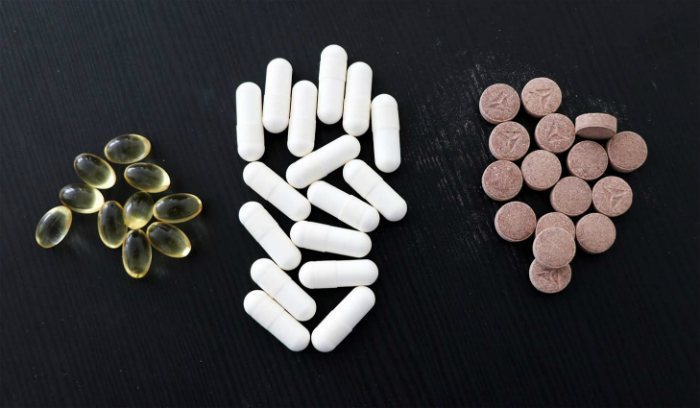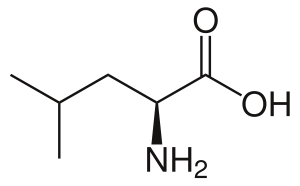 As science is now beginning to highlight… what we eat seriously impacts exercise performance, such as how we can recover and perform, including our flexibility.
As science is now beginning to highlight… what we eat seriously impacts exercise performance, such as how we can recover and perform, including our flexibility.
One study showed that eating fruits and vegetables throughout the day increased productivity and well-being. (I)
Another study published that eating foods containing polyphenols rescued muscle soreness significantly as opposed to a placebo, or not consuming enough fruits and vegetables. (II)
Not only that, but eating proteins (amino acids) prior to exercise can increase muscle contractions and stamina.
This is because amino acids such as leucine can increase muscle growth and repair significantly during and after exercise. (III) All of which I’ll discuss in this article to get the best results!
Table of Contents
The Importance of Pre-Workout Nutrition

High-fat process foods, for example, are filled with unhealthy trans fats – known for causing health problems, not to mention poor digestion which leads to gastronomical distress during exercise. All of which leads to poor decision making, cramp, fatigue and muscle scarring.
Therefore, if you’re constantly rushing from one place to another, where you’re eating anything at hand to fuel your workouts, you could be causing yourself more harm than good.
On the other hand (and as you’re about to discover) eating a calculated diet filled with anti-inflammatories, amino acids and the right type of carbohydrates can turn you from an average Joe, into the next ‘Superman’ or ‘Superwoman’.
What Foods To Eat Before a Workout?
 Carbohydrates may have been given the top position in pre-workout nutrition as carbs directly fuel intense workouts. And let’s not forget fats, which can supply energy for longer duration events such as a marathon.
Carbohydrates may have been given the top position in pre-workout nutrition as carbs directly fuel intense workouts. And let’s not forget fats, which can supply energy for longer duration events such as a marathon.
However, amino acids (AA’s) are just as vital if you want to achieve maximum muscle performance. This is due to the way AA’s help to signal for muscle contractions to take place, along with improved stamina and repair (more on Amino Acids below in ‘supplements’).
Below I’ve listed the main foods and supplements to improve your pre-workout nutrition and performance:
#1 Whole Food Proteins
 Eating lean proteins such as egg whites, boiled/steamed or lightly grilled chicken, fish, or plant sources such as beans or hummus is a good way to fuel your muscles prior to training.
Eating lean proteins such as egg whites, boiled/steamed or lightly grilled chicken, fish, or plant sources such as beans or hummus is a good way to fuel your muscles prior to training.
As a general rule, you should consume easy to digest proteins that contain little to no fat before you exercise. Some examples are boiled egg whites, boiled or lightly grilled chicken breast and white fish, or in some cases oily fish such as salmon.
Proteins contain amino acids, the most common being l-leucine, which increases muscle protein synthesis. This is the process that converts food sources directly into new muscle tissue.
Therefore, the more ‘quality’ protein you can get into your diet prior (and post) training, the better you’ll perform and recover.
#2 Carbohydrates
If you have time on your side, you should consume slow-releasing carbohydrates two hours prior to exercise for sustained energy release.
For an added boost, look to consume easy to digest (high glycemic) carbs 20 minutes before your workout. This will give you additional energy needed to increase your strength and speed in HIIT sessions.
This is, of course, if we’re not taking into account fasted training or fat-adapted training where you’d eat fewer carbs and more fats in your diet for a short period of time. However, this is a topic for another post.
Slow Releasing Carbohydrates
 Complex carbohydrates (slow releasing carbs) are best consumed 2 to 4 hours prior to training. This is because they contain fibre which needs to pass through your small intestines before you can exercise with comfort.
Complex carbohydrates (slow releasing carbs) are best consumed 2 to 4 hours prior to training. This is because they contain fibre which needs to pass through your small intestines before you can exercise with comfort.
By allowing your body to digest complex carbohydrates before exercising, means that your body is primed and fuelled efficiently.
What I mean to say is that your muscle and liver glycogen stores will be topped up along with nutrients such as magnesium and healthy omega 3 fats, which are often found in whole grains.
Fast Acting Carbohydrates
 Easy to digest high glycemic carbs such as a glucose powder or fruits which contain a low amount of fibre will boost your workout potential.
Easy to digest high glycemic carbs such as a glucose powder or fruits which contain a low amount of fibre will boost your workout potential.
By eating these types of foods prior to training you’ll have additional glycogen in your bloodstream, which can then be sent into your working muscles.
If you feel that consuming fast-acting carbs is too much on top of your 2 hours pre-workout meal, then you might want to save this type fo fuel for intra-workout, or post-workout recovery. RELATED: Importance of Glycogen Post Workout
#3 Fats
You may have heard that fats should be kept to a minimum for your pre-workout fuel. While this may be true in some cases, fats can actually increase sports performance:
 Fats play an important role in keeping your muscles energised during (and after) exercise thanks to the way intramuscular triglycerides work.
Fats play an important role in keeping your muscles energised during (and after) exercise thanks to the way intramuscular triglycerides work.
They fuel muscle contractions and ATP energy supply, and they’ve also been shown to increase energy in the muscles during low to moderate activity. Making it a perfect fuel for endurance sports.
Furthermore, researchers found that when high carbohydrate and low-fat diets were adhered to, less fatty acid metabolism took place. Therefore, this highlights how eating fats can actually help you to burn both dietary fats, and fat stores on your body – helping you to look and feel leaner whilst improving energy levels. (V)
 Other scenarios where fats in pre-workout nutrition are concerned: For example, if you’re training to be in a fat-adapted state such as ketosis. Or if you’re trying to become more fuel-efficient, allowing your body to tap into fat reserves for energy.
Other scenarios where fats in pre-workout nutrition are concerned: For example, if you’re training to be in a fat-adapted state such as ketosis. Or if you’re trying to become more fuel-efficient, allowing your body to tap into fat reserves for energy.
So, on the flip side, why would you want to avoid fats in your pre-workout nutrition?
Fats can slow down your digestion, leading to poor nutrient delivery along with stomach discomfort during exercise. The trick is to fuel for your goals, and most importantly, avoid unhealthy fats such as trans fats.
#4 Supplements

L-Citrulline
Citrulline improves nitric oxide production, which means it increases blood, oxygen and nutrient delivery in to your working muscles. Furthermore, citrulline (which gets converted into arginine) has been shown to stimulate growth hormone production.
By using citrulline pre-workout, you’ll stimulate oxygen and nutrient delivery, along with hormone production which is responsible for muscle growth and fat loss.
L-Leucine

Leucine is an amino acid that has a powerful ability to stimulate muscle growth in the way that it increases muscle protein synthesis.
Studies have shown that when leucine is present during training, it increases the growth and repair of muscle fibres considerably. (VI)
L-Glutamine
Glutamine is a neurotransmitter that helps to restore brain cells, whilst improving growth hormone levels, muscle growth, and the healing of your gut.
It’s naturally made in the body, but when activity levels increase, studies have shown that supplementation is beneficial for immune health and recovery. (VII)
Creatine

Creatine has been proven to increase power, strength, speed and recovery in short bursts of exercise.
It’s also a useful amino acid to help improve training adaptation during periods of high training volume. Not only that, but creatine can also protect the mind – similar to nootropics.
L-Theanine
L-theanine has been shown to increase focus and concentration, whilst also increasing energy after intense workouts. RELATED: L-Theanine: Improve Post Exercise Mental Alertness
 It’s also beneficial as a pre-workout supplement in the way it increases blood flow into the working muscles and mind without causing anxiety that may arise with coffee consumption. This makes l-theanine an excellent choice when you need to focus, whilst increasing your endurance.
It’s also beneficial as a pre-workout supplement in the way it increases blood flow into the working muscles and mind without causing anxiety that may arise with coffee consumption. This makes l-theanine an excellent choice when you need to focus, whilst increasing your endurance.
Acetyl-l-carnitine
Acetyl-l-carnitine is a supplement which increases lipid oxidation and energy supply. This means that acetyl-l-carnitine can improve how your body uses fat stores as energy, whilst also improving the rate of energy synthesis in the mitochondria – the powerhouse of cellular energy.
Sport Nutrition Expert Recommendation
While you might find this guide useful in helping you to understand what your body needs prior to training, what you really need will vary greatly from person to person.
This is due to genetics, the sports you take part in, your body composition and your goals.
However, it’s safe to say that most of you will need carbohydrates as fuel for energy, amino acids to help your muscle function at their best, and in some cases, a higher percentage of fats to assist in longer duration events.
If you want to know more information on supplements or nutrition for enhanced performance, you can do so by reading my nutrition guides and supplement guides.
References:
(I) Conner, Tamlin S, et al. “On Carrots and Curiosity: Eating Fruit and Vegetables Is Associated with Greater Flourishing in Daily Life.” British Journal of Health Psychology, U.S. National Library of Medicine, May 2015. (source)
(II) Myburgh, Kathryn H. “Polyphenol Supplementation: Benefits for Exercise Performance or Oxidative Stress?” Sports Medicine (Auckland, N.Z.), Springer International Publishing. (source)
(III) Rennie, Michael J., et al. “Amino Acid Transport during Muscle Contraction and Its Relevance to Exercise.” SpringerLink, Springer, Boston, MA, 1 Jan. 1998. (source)
(IV) “Certificate in Sports Nutrition.” The University of Edinburgh, 27 Aug. 2019. (source)
(V) Fleming, Jesse, et al. “Endurance Capacity and High-Intensity Exercise Performance Responses to a High Fat Diet.” International Journal of Sport Nutrition and Exercise Metabolism, U.S. National Library of Medicine, Dec. 2003. (source)
(VI) Rennie, et al. “Branched-Chain Amino Acids as Fuels and Anabolic Signals in Human Muscle.” OUP Academic, Oxford University Press, 1 Jan. 2006. (source)
(VII) Wischmeyer, Paul E, et al. “Parenteral Glutamine Supplementation in Critical Illness: a Systematic Review.” Critical Care (London, England), BioMed Central, 18 Apr. 2014. (source)

Leave a Reply